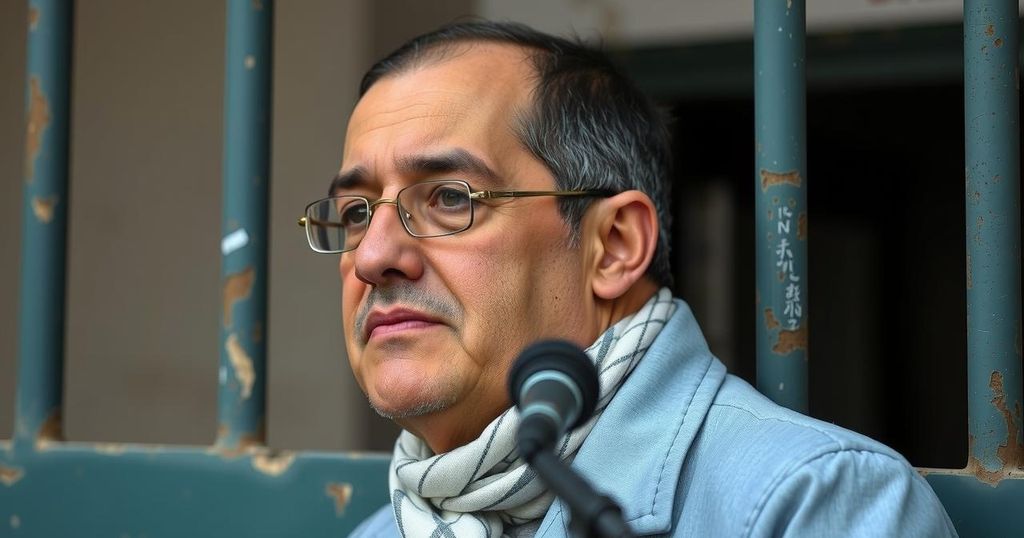Said Ait Mahdi, a Moroccan activist, has been sentenced to three months in prison for protests against the government’s earthquake response. His charges included defamation and inciting unauthorized demonstrations. The case has drawn criticism from human rights groups who label it politically motivated, as protests highlight dissatisfaction with recovery efforts in the earthquake-stricken Al Haouz region.
A prominent activist in Morocco, Said Ait Mahdi, has been sentenced to three months in prison for leading protests against the government’s inadequate response to the recent earthquake that devastated the Al Haouz region. Ait Mahdi, who is the president of a major activist group in the area, faced multiple charges including defamation, assault, and inciting an unauthorized demonstration. His sentencing has drawn sharp criticism from human rights advocates, who view it as a politically motivated act intended to silence dissent.
On September 8, 2023, a 6.8-magnitude earthquake resulted in significant destruction across the region, claiming nearly 3,000 lives and rendering many families homeless. In the aftermath, there have been ongoing protests, reflecting public dissatisfaction with the recovery efforts. Protesters accuse local authorities of mismanagement, with many survivors still living in temporary shelters as they await adequate housing.
The attorney for Ait Mahdi, Isaac Charia, remarked that although his client’s three-month sentence is less severe than expected, similar cases usually involve longer prison terms. Some co-defendants were acquitted in recent court proceedings, highlighting the ongoing judicial process surrounding these cases. Civil society organizations in Morocco have condemned Ait Mahdi’s arrest, categorizing it as an unjust repression of activism advocating on behalf of the earthquake victims.
The situation in Morocco has reached a critical juncture following a devastating earthquake that has intensified longstanding social issues. The disaster exposed significant disparities, particularly in indigenous communities lacking essential infrastructure. Amidst this turmoil, protests have emerged as citizens demand accountability from their government regarding recovery efforts. These demonstrations are symptomatic of broader calls for transparency and respect for civil liberties, particularly in light of government action against activists like Said Ait Mahdi.
In conclusion, Said Ait Mahdi’s sentence has exposed the broader issue of governmental repression in Morocco, particularly against those advocating for rights and accountability following the tragic earthquake. His imprisonment reflects the tensions between the state and citizens seeking justice for the victims of the disaster. Advocacy groups continue to demand Ait Mahdi’s release, highlighting ongoing struggles for civil liberties in the region.
Original Source: www.independent.co.uk







